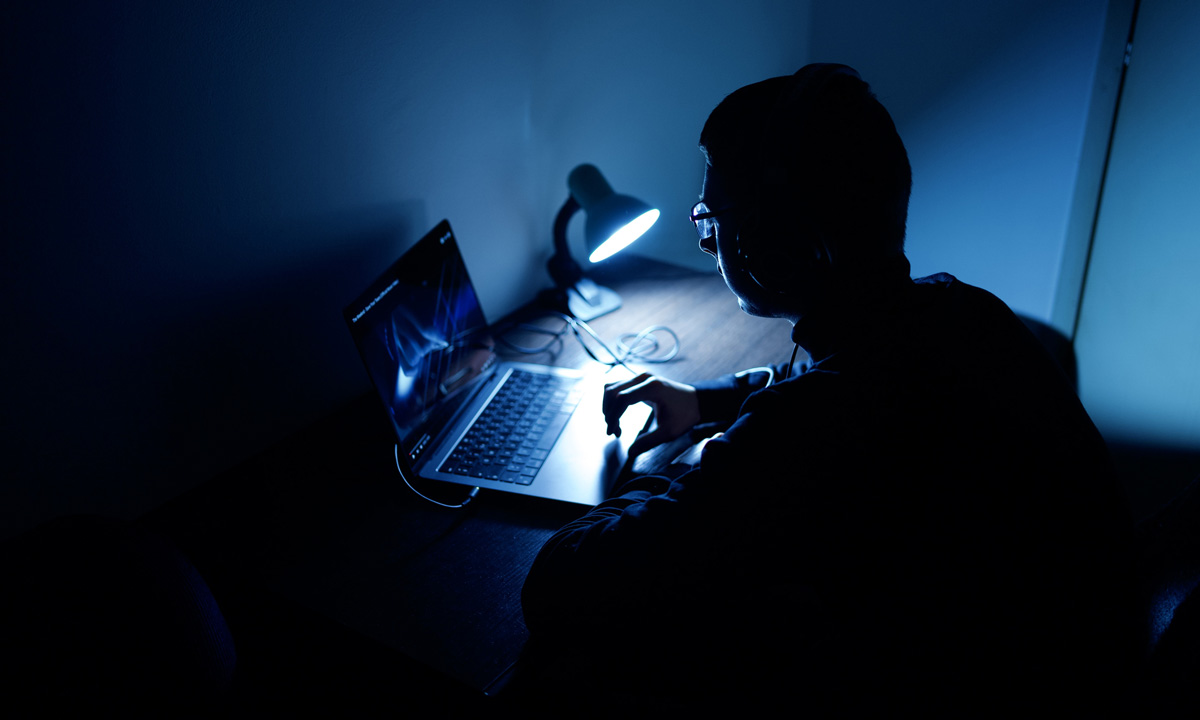Exclusive: Dems Urge Federal Action on Student Surveillance Citing Bias Fears
A coalition of House Democrats warned that schools could use digital monitoring tools in ways that violate civil rights laws.

Get stories like this delivered straight to your inbox. Sign up for The 74 Newsletter
A coalition of Democratic lawmakers on Thursday called on the U.S. Education Department to investigate school districts that use digital surveillance and other artificial intelligence tools in ways that trample students’ civil rights.
In a letter shared exclusively with The 74, the coalition expressed concerns that AI-enabled student monitoring tools could foster discrimination against marginalized groups, including LGBTQ+ youth and students with disabilities. The Education Department’s Office for Civil Rights should issue guidance on the appropriate uses of emerging classroom technologies, the lawmakers wrote, and crack down on practices that run afoul of existing federal anti-discrimination laws.
“While the expansion of educational technology helped facilitate remote learning that was critical to students, parents and teachers during the pandemic,” the lawmakers wrote, “these technologies have also amplified student harms.”
Lawmakers asked the Education Department’s civil rights office whether it has received complaints alleging discrimination facilitated by education technology software and whether it has taken any enforcement action related to potential civil rights violations.
The letter comes in response to a recent national survey of educators, parents and students, the findings of which suggest that schools’ use of digital tools to monitor children online have a disparate impact on students based on their race, disability, sexual orientation and gender identity. The survey, conducted by the nonprofit Center for Democracy and Technology, found that while activity monitoring has become ubiquitous in schools and is intended to keep students safe, it’s used regularly as a discipline tool and routinely brings youth into contact with the police.
Findings from the CDT survey, lawmakers wrote, “raise serious concerns about the application of civil rights laws to schools’ use of these technologies.” Letter signatories include Democratic Reps. Lori Trahan of Massachusetts, Sara Jacobs of California, Hank Johnson of Georgia, Bonnie Watson Coleman of New Jersey and Adam Schiff of California. Trahan, who serves on the House Energy and Commerce Committee’s Innovation, Data and Commerce Subcommittee, has previously called for tighter student data privacy protections in the ed tech sector.
The monitoring tools, such as those offered by for-profit companies GoGuardian and Gaggle, rely on artificial intelligence to sift through students’ online activities and flag school administrators — and sometimes the police — when they discover materials related to sex, drugs, violence or self-harm.
Two-thirds of teachers reported that a student at their school was disciplined as a result of activity monitoring and a third said they know a student who was contacted by the police because of an alert generated by the software.
Children with disabilities were more likely than their peers to report being watched, and special education teachers reported heightened rates of discipline as a result of activity monitoring. The findings, researchers argue, could run afoul of federal rules that entitle children with disabilities equal access to an education. Even beyond the technologies, students with disabilities are subjected to disproportionate levels of school discipline, including restraint and seclusion, when compared to their general education peers.
Half of all students said their schools responded fairly to alerts generated by monitoring software, a sentiment shared by just 36% of LGBTQ+ youth. In fact, LGBTQ+ youth were more likely than their straight and cisgender peers to report that they or someone they know was disciplined as a result of monitoring. And nearly a third of LGBTQ+ youth reported that they or someone they know was outed because of the technology.
More than a third of teachers said their school monitors students’ online behaviors outside of school hours — and sometimes on their personal devices.
In a similar student survey, released this month by the American Civil Liberties Union, a majority of respondents expressed worries that the monitoring tools — despite being designed to keep them safe — could actually cause harm and a third said they “always feel” like they’re being watched.
The 74 has reported extensively on schools’ use of digital surveillance tools to monitor students’ online behaviors, and the tools’ implications for youth civil rights. The company Gaggle previously flagged to administrators student communications that referenced LGBTQ+ keywords like “gay” and “lesbian.” The company says it halted the practice last year in the wake of pushback from civil rights activists.
Given the survey findings, the lawmakers urged the Education Department to clarify “how educators can fulfill their civil rights obligations” as they develop policies related to artificial intelligence, whose rapidly evolving role in education more broadly — including students’ use of tools like ChatGPT — has become a topic of debate.
“This research is particularly concerning due to linkages between school disciplinary policies and incarceration rates of our nation’s youth,” the coalition wrote, adding concerns that the tools can create hostile learning environments.
Get stories like these delivered straight to your inbox. Sign up for The 74 Newsletter

;)
